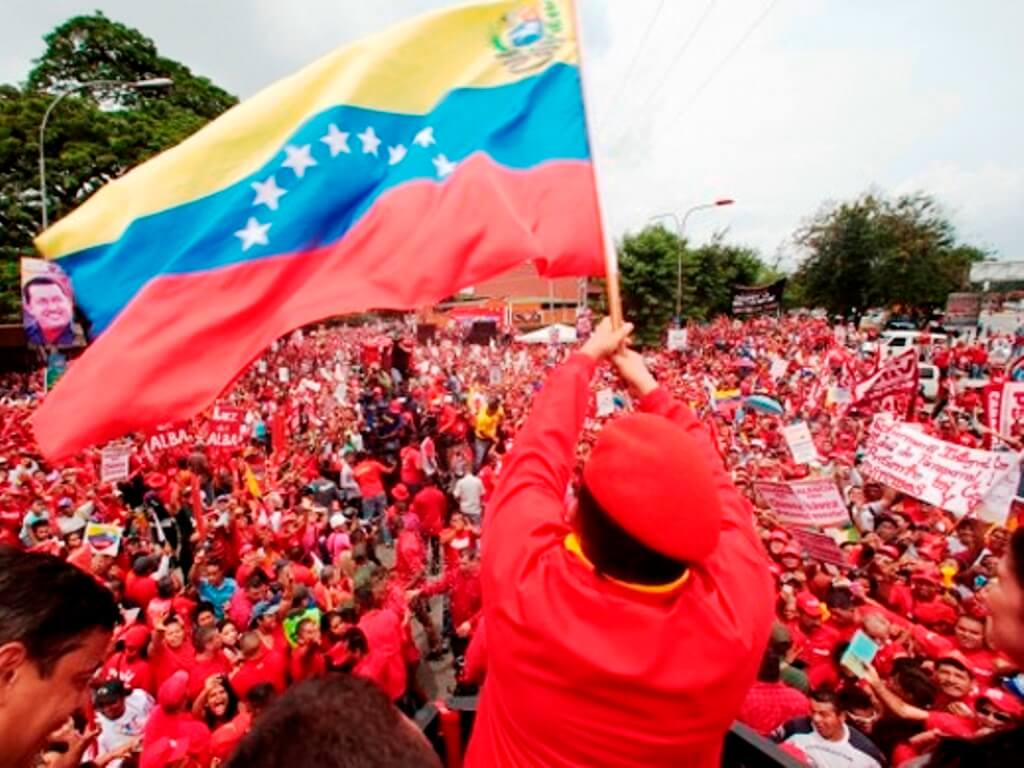Boaventura de Sousa Santos is a Doctor in Sociology of Law and professor at the University of Coimbra, Portugal. Theoretical and practical analyst of the “ecology of knowledge”, he visited Argentina invited by the Rosa Luxemburg Foundation and participated in the workshops of the People’s University of Social Movements in Cordoba and Buenos Aires. In an exclusive interview, we talked about the importance of the course of the current experience in the urgent reestablishment of the left-wing sectors worldwide.
Boa, as he is affectionately known, agreed to this interview in which he reflected on the importance of political articulations for transformational and emancipatory change, the critique for the re-foundation and reinvention of the left in front of the emergence of the “revanchist right” and the need to create other political figures that combine the experiences of political parties and social movements in Argentina, Latin American and worldwide.
“Some progressive parties have forgotten about political renewal”
What is the current situation of left forces in Europe, and what dialogue can (or should) exist between them and those of Latin America?
My work this past 10 years has been about this issue: on the one hand, making a proper critique of european left forces to re-found them and reinvent them, and on the other hand, trying to take as much benefit as possible from the energies that emerged in this continent (Latin America).
European left forces, in plural, almost all of them, but specially the social democratic left, have sold themselves completely to capitalism, to the so-called “third way” of the english labourist party.
In Germany, for example, there is a disaster because the left does not exist, the Socialists in power make no renewal in terms of a new policy for Europe, on the contrary, the German socialists are more aggressive in relation to the countries of southern Europe.
But there is a renewal. Many young men and women that were members of the social democratic parties spent some times in Latin America’s progressive government of Venezuela, bolivia, Ecuador and Brazil and they’ve learned much in this continent. Not just how to maintain the idea of socialism (Socialism of the 21st century), but also how to develop new ways of participative democracy.
And this was taken by these youth that were unsatisfied with social democracy and that created in Spain “Podemos” Party (We Can), Syriza in Greece and the The Left Bloc in Portugal, parties that are looking for reinventing left forces by forming alliances of knowledge, some were originated in Latin America. This sort of articulation, which includes mechanisms of participative democracy, citizen’s councils, is the renewal that emerged from this alliances, from the inter-knowledge with the european realities.
Europe has nothing to teach the world and neither can it learn from other realities due to the colonialist prejudice, but some younger men and women, the indignant (indignados), are trying to learn from the latin american experience. The problem is that the latin american experiences itself has forgotten what it has taught us: some progressive parties have forgotten the political renovation, this idea of a profound political reform.
The only one who tried this was Hugo Chávez, but he did it in a charismatic way, and we know that all charismatic powers depend on its leader and when the leader leaves, the space is left empty. In Venezuela, when institutions were weak and social movements were weak as well, the mobilization of the left came from the top, not from below, differently to what happened in Brazil and Argentina.
We are in a defensive stage in Latin America: while in Europe there are some novelties, for example, in Portugal we have a left-wing government, since the Social Democratic party has allied with the communists and with the Left Bloc. There is another element: the fear for the revanchist right, and because of the rise of the extreme right, the left has unified. That is the reason we have this government in Portugal, due to fear of having a 4 year administration formed by a revanchist right that wanted to destroyed everything we had conquered in the last 40 years.
“The left will have to be re-founded”
Do you believe that the left forces should develop a critical balance regarding the State and Social Movements?
We are going to need much re-thinking on left politics, and we need to do it as soon as possible. It’s not easy, in some countries left-wing parties have created an internal sectarism that annuls the possibility of a dissent, it is very easy for whoever has a critical position to be silenced and expelled. There has been much sectarism in left parties who were in the government, or still are.
We need to re-think all the Parties logic because otherwise there is no future, the parties cannot, by no means, have the monopoly of representation, we must find other ways, and these new mechanisms come from participatory democracy, from citizens, from social movements which must play a key role in this political renewal, we have to create other political figures, we call them parties- movements.
On the other hand, these governments, almost all of them, have surrendered to a development model that they have accompanied with a historical impact, which seemed very good but finally ended up being disastrous as well: It is the fact that international prices gave these governments advantages and for the first time they had access to great incomes without changing the power structure, social hierarchy, class structure or the State: they were able to achieve certain social distribution —remarkable such is in Brazil where more than 45 million people came out of poverty— but the social cost was quite big. It was a social system that could not sustain itself because it was only based on commodities’ international prices and it did not struggle to achieve a political and fiscal reform that could make the rich pay more taxes. The rich continued not paying taxes and now we see that their money is in tax havens. If all that money would have been invested through taxes we would have decent health services and education for everyone.
This left force will have to re-found itself, its base during this past decade is not sustainable anymore, inner crisis, in some cases even corruption, demands a renewal. In some countries, other parties will emerge, in some other countries this won’t be possible and the existing parties will have to take up the task of renewing themselves.
But something dramatic must happen because I do not think this can be achieved otherwise, unless the revanchist right is so vindictive that it governs so disastrously so that left governments can quickly return without renewal, and there can be a period of short-term stability in the continent.
Was it appropriate to speak of “populists governments” during the period of progressive speeches in Latin America?
Concepts eventually ended up being an object of debate. Progressive governments are already a bad word, even for fellow left comrades with whom we have some differences and populism in Argentina is the heritage of intellectuals but it was never accepted much, neither outside nor inside the country, that the populist reason was a good hypothesis. I like talking about “popular”, off course, popular and national, when there are governments that take favourable position to the ones from “below” and which has some sort of respect for sovereignty. Given that there is a mixture between middle class and the ones from “below” we can talk about “national and popular” as it was done referring to Bolivia.
Talking about populism has became a way of stigmatizing or demonizing the left while the right takes advantage of that term: when it is said that the right is populist this is a compliment for them, they don’t mind being populist, now when it is said that the left is populist this is incredible.
Everything we fight for, all attempts to improve people’s lives, to defend rights, is now considered populist, defending rights backfired on those who theorize that the idea of populism was never an empty signifier, but a signifier that was emptied because there was a specific interest on emptying it; so I prefer to talk about the national-popular significant instead of populism.











